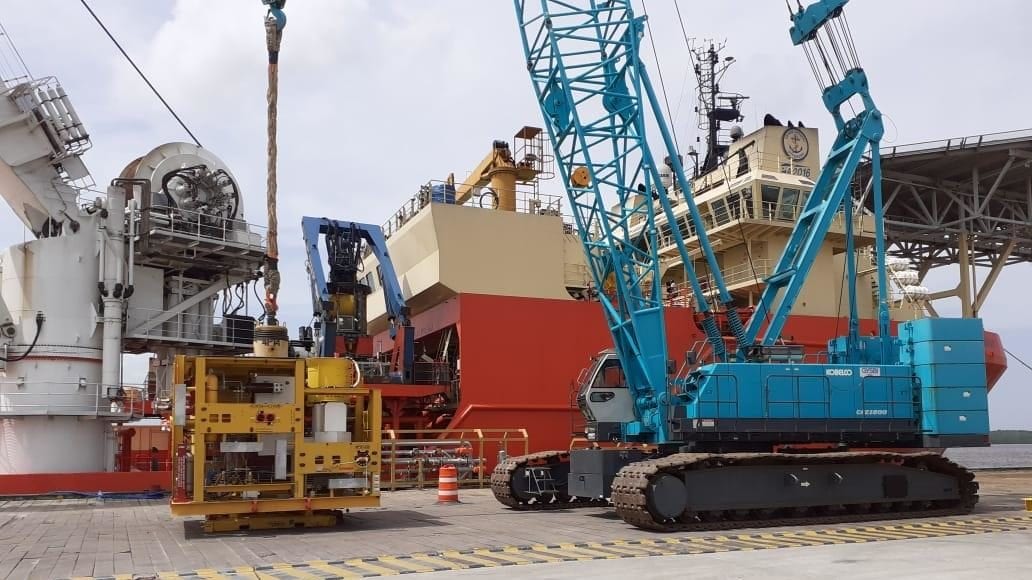ExxonMobil Guyana says it remains committed to a local content framework that supports the implementation of effective measures that would help to build a globally competitive workforce and supply base in the new oil producing South American country. The company says its strategy for local content largely aligns with the revised draft local content policy which the Guyana government has been leading widespread consultations on since February.
At the end of 2020, the total Guyanese workforce supporting ExxonMobil’s overall activities was more than 2,300. Since 2015, more than GY$77.6 billion has been spent directly with more than 800 Guyanese companies for goods and services ranging from food to engineering.
“Very importantly, most of the support operations that come from Trinidad have now been migrated to Guyana,” Alistair Routledge, President of ExxonMobil Guyana said in an update on Thursday.
Just recently, the Guyana Shore Base Inc. (GYSBI) received a large delivery of subsea trees for the Liza Phase 2 Development, as part of a series of activities aimed at shifting these and other services to Guyana. “All subsea activities are being transferred to GYSBI, and we are transitioning away from Trinidad,” Sean Hill, General Manager of the facility told OilNOW.
Routledge said the most valuable part of the release of the draft policy document for local content in Guyana is the engagement and collaboration that it has sparked. “We’ve had a significant number of engagements with local companies, with the Ministry of Natural Resources and other entities in the country. And that is really what is needed to drive local content, to identify the barriers to progress and to find solutions to those. A policy in its own right is not going to resolve or move local content through. It takes collaboration.”
The company has since made a written submission to the government on the draft local content policy reaffirming its commitment to implementing effective initiatives to help build a globally competitive workforce and supply base.
“We are committed to growing local content that will generate broad and sustainable economic development while supporting safe development of the nation’s oil and gas resources,” Routledge said. “We are pleased that the government continues to seek broad input and collaboration to develop an approach suited to Guyana’s unique situation and national development objectives.”
Routledge said local content policy or legislation should be informed and supported by appropriate economic, labour and industrial baseline studies. He said it is essential that when driving local content in one sector, actual and projected national capacity is taken into consideration to avoid negatively impacting other sectors of the economy.
“Prior experience around the globe demonstrates that overly aggressive local content regulations and mandates can have unintended, negative consequences on the development of projects, industry, and the broader economy,” he said.
During stakeholder consultations in February, President Irfaan Ali stated that the government is aware of the requirements and standards necessary to tap into the oil and gas supply chain. “…We are ready to make those investments in our human capital to meet those opportunities, but in doing so we have to have a policy that protects those opportunities for those persons who are training to meet the opportunity,” he stated, later adding that setting achievable local content targets is crucial to this goal.
ExxonMobil Guyana Local Content Advisor Devon Seeram said the company works closely with its prime contractors to ensure that they are equally committed to developing local content and tracks that their local content plans are effectively implemented.
“Since our first discovery in 2015, we have made significant progress creating jobs, growing the number of local suppliers we work with and increasing our local spending,” Seeram said. “Guyanese businesses and ExxonMobil have succeeded in building local content together, and we believe that additional progress is both possible and necessary as the oil and gas sector continues to grow.”



